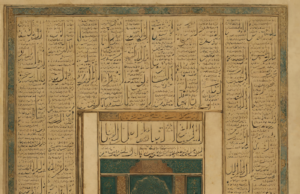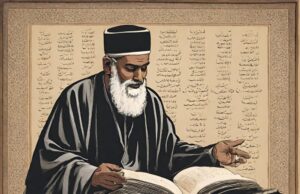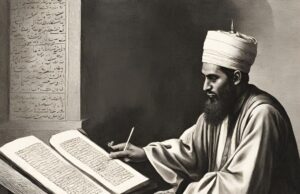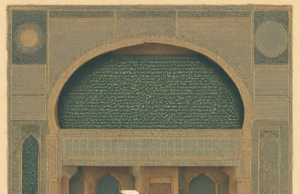Why is Dua to ‘Other than Allah’ forbidden across Ghayb (unseen)?
Download PDF
WHY IT IS CRUCIAL TO USE THIS PHRASE WHEN APPROACHING QUR’ĀNIC VERSES ABOUT DUʿĀ’ AND ISTIGHĀTHA.
The phrase ‘across the curtain of Ghayb (barrier...
How reliable is our Hadith Corpus? | Ayatullah Sayyid Kamal Al-Haydari
In a crucial video, Ayatullah Sayyid Kamāl al-Ḥaydarī sheds light on the challenges of the Twelver Imāmī Ḥadīth corpus. He cautions against accepting fabricated narrations that support exaggerated beliefs about Imams. Al-Ḥaydarī refutes claims that classical scholars effectively filtered out fabrications, suggesting instead that they exacerbated the issue. He emphasizes the use of the Qur’ān to discern authentic narrations, as advocated by the Imams.
How authentic is the Hadith of the Twelve Caliphs after the...
This paper delves into the famous ‘12 Caliph/Ruler’ Hadith cited in Sunni sources, often used to support the Twelver Imami belief regarding the Imamate lineage after Prophet Muhammad (s). Further, it critically evaluates Sunni Hadith scholarship’s view on its authenticity and explores Twelver Imami sources, arguing that the Hadith was never thought to refer to their Imams by the early Shia, primarily because of its text being tailored to prop up Umayyad legitimacy rather than that of the Ahlul Bayt (as).
Did the Prophet (s) and the Aimmah (as) have knowledge of...
This post continues the theological exploration initiated in Part 1, probing into the extent of knowledge possessed by Prophet Muhammad and the Imams in Shia Islam. Building upon Quranic verses, Hadiths, and scholarly interpretations, it delves deeper into the nuances of 'ilm al-ghayb (knowledge of the unseen) and its implications. It prompts readers to reflect on the complexities of prophetic knowledge and its significance within Islamic belief, encouraging a nuanced understanding of the roles of the Prophet and the Imams in guiding the Muslim community.
How and why were the narrations from the Aimmah (as) fabricated?
This post investigates the phenomenon of fabricated narrations attributed to the Imams in Shia Islam. It delves into issues surrounding the authentication of Hadiths, and the motives behind the fabrication of these narrations, ranging from political agendas to sectarian biases. It encourages readers to engage critically with Hadith sources and to discern authentic traditions from spurious ones. It underscores the importance of scholarly rigor in preserving the integrity of Islamic teachings and upholding the authority of genuine narrations from the Imams.
Is Istighatha (invoking other than Allah) considered Shirk (Part 2)?
Part 2 delves deeper into scholarly perspectives and Quranic references, providing a comprehensive analysis of Istighatha within Islamic doctrine. Drawing upon Hadiths and classical jurisprudence, the article scrutinizes diverse viewpoints, aiming to elucidate the nuanced understanding of seeking help from entities other than Allah. It encourages readers to engage thoughtfully with the theological implications of invoking beings other than Allah.
What is Ghuluww (Exaggeration) in Religion?
Delving into the concept of Ghuluww, this article examines the thin line between religious fervor and extremism. Through historical and contemporary examples, it highlights the detrimental effects of exaggerated religious practices on communities. Advocating for moderation and tolerance, it encourages a balanced approach to faith. This insightful exploration urges readers to reflect on the importance of maintaining harmony and understanding within religious contexts.






